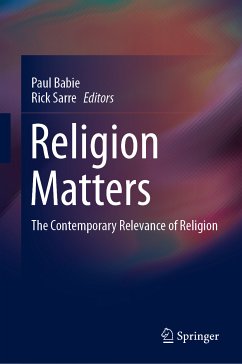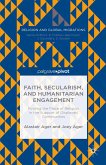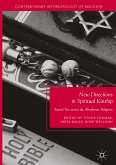The book approaches the topic by way of a critical engagement between religion, broadly defined, and the individual disciplines in which each of the contributors is expert. Rather than simply taking the dogmatic position that religion offers something to every possible discipline, each of the chapters in this collection addresses the question: is there something that religion can offer to the discipline in question? That is the value of the book - it takes a truly critical stance on the place of religion in contemporary society.
Dieser Download kann aus rechtlichen Gründen nur mit Rechnungsadresse in A, B, BG, CY, CZ, D, DK, EW, E, FIN, F, GR, HR, H, IRL, I, LT, L, LR, M, NL, PL, P, R, S, SLO, SK ausgeliefert werden.









